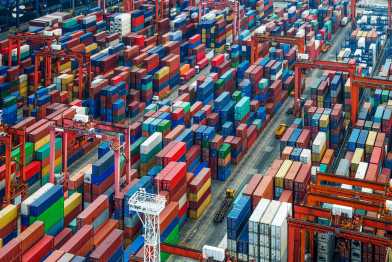Indicators
Previous publications on coronavirus:
COVID-19 fiscal measures: merely announcing them has an effect

Switzerland’s COVID-19 policy was federal in nature, with the cantons taking specific support measures to limit the economic slump caused by the various challenges. Recent unpublished analysis of these measures suggests that they managed to stabilise business expectations in terms of demand, production, employment and the general outlook as soon as they were announced.
The mental health of the Swiss population during the pandemic

How did the Swiss fare during the first two waves of the COVID-19 pandemic? Using data from Dargebotene Hand and Swisscom, analysis conducted by Marc Anderes and Stefan Pichler shows that calls to the Dargebotene Hand helpline increased significantly just after the outbreak of the pandemic.
“COVID has boosted computerisation”

Martin Wörter and Mathias Beck are examining the digital transformation as part of a research project funded by the National Research Programme (NRP). In this interview the two innovation economists explain why the coronavirus pandemic has accelerated computerisation and why Europe is still lagging behind the United States in terms of technology.
The innovation activities of Swiss companies during the COVID-19 crisis

The coronavirus pandemic has clearly left its mark on Switzerland’s innovation landscape. More than a quarter of the firms surveyed by KOF have had to adapt their innovation processes significantly or even very significantly owing to the COVID-19 crisis. SMEs, start-ups and multinational corporations have been hit particularly hard. Just under half of these companies report that COVID-19 has meant a reduction in R&D and innovation investment and a decline in innovation collaborations.
KOF Business Tendency Surveys: Swiss economy booming despite geopolitical risks

The KOF Business Situation Indicator for firms in Switzerland rose in April, reaching its highest level since recovering from the financial crisis in 2010/2011. As far as developments in the near future are concerned, however, companies are more cautious than they have been in recent months. The positive impact of the Swiss economy’s recovery from the pandemic is outweighing the adverse effects of the war in Ukraine.
Global Barometers fall due to the war in Europe and the increases in COVID-19 cases in China

The Global Barometers decrease in April, likely reflecting shocks such as the war in Ukraine and the increase in the number of COVID-19 cases in China. The Coincident Barometer is now below the historical mean of 100 points for the first time since February 2021. In addition, the more noticeably drop in the Leading Barometer signals the perspective of a stronger deceleration in world growth for the coming months.
Global Barometers decline and reinforce normalization tendency in the first quarter of 2022

The Global Economic Barometers are dropping more sharply in March. This partly reflects the normalization of the global economy at the beginning of 2022 and is largely driven by changed assessments in Asia. The coincident indicator remains relatively strong, but the distancing of the leading indicator from the historical mean of 100 points may be a first sign of a stronger deceleration than previously forecast for the coming months.
KOF Economic Barometer: Normalisation continues

The KOF Economic Barometer fell slightly in February and now stands at 105 points. This is still to some extent higher than the long-term average. The normalisation since the most recent peak in May 2021 is thus proceeding. The economic situation should therefore continue to develop positively.
KOF Business Tendency Surveys: Swiss economy on course for recovery despite omicron wave

The Swiss economy’s recovery is continuing despite the omicron wave at the beginning of the new year. This is demonstrated by the KOF Business Tendency Surveys for January. Although many employees are currently having to quarantine or self-isolate, a specially included KOF question reveals that the loss of sales due to staff absences is limited. The availability of intermediate products, on the other hand, remains a problem.
KOF Employment Indicator reaches all-time high

The KOF Employment Indicator continues to rise and is at its highest level since 2000. Its further increase is mainly due to manufacturing and the wholesale sector. In the hospitality industry, on the other hand, the employment outlook has deteriorated somewhat.